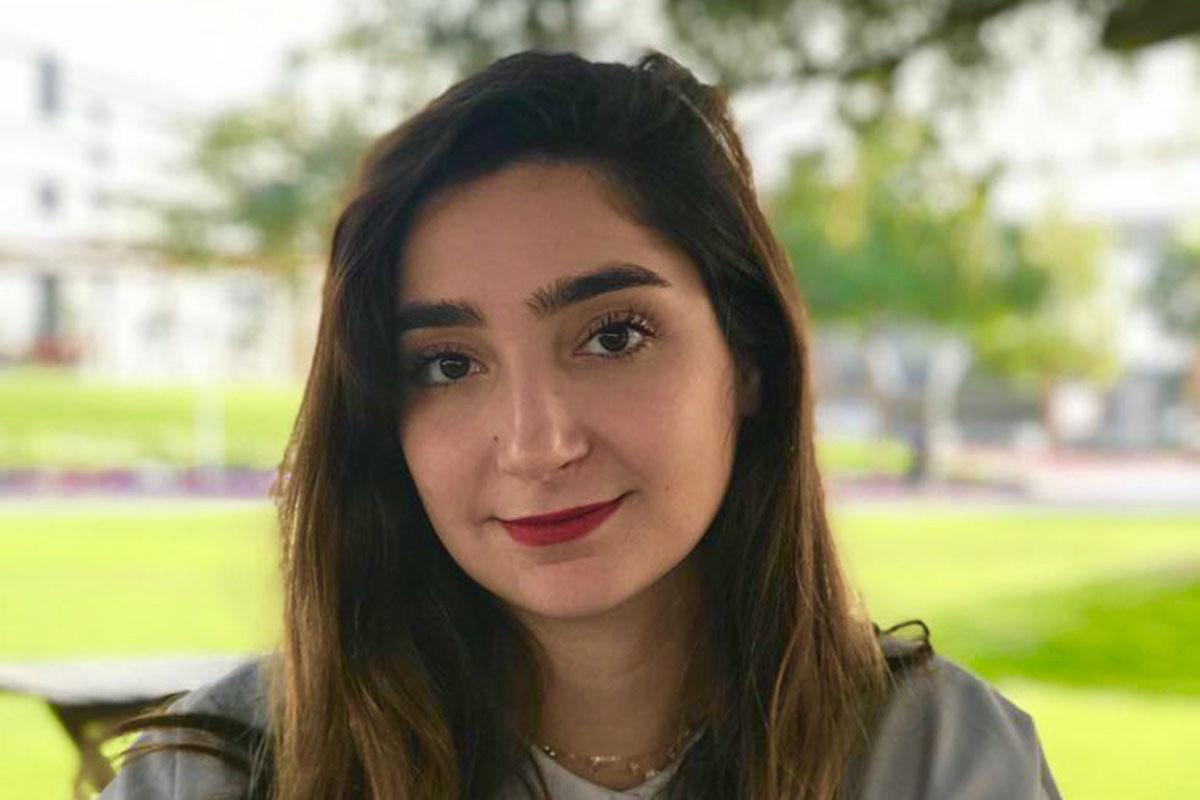Sometimes, for reasons we may not fully understand, we approach the things we want most with caution.
Zad El-Makkaoui, for example, has known since she was 17 that she wanted to earn a graduate degree in social-organizational psychology — a decision she made after a comment by her mother prompted her to read up on a field she’d never heard of before. In 2014, as an undergraduate at American University in Beirut, El-Makkaoui even traveled to New York City with her sister to check out Teachers College’s Social-Organizational Psychology program in person.
“We got as far as the door to the program office on the second floor of Zankel Hall,” she recalls. “I didn’t go in – but I knew that this is where I would study one day.”
Zad El-Makkaoui: M.A., Social-Organizational Psychology
Three years later, after launching her career with a Beirut-based consulting firm specializing in social impact philanthropy, El-Makkaoui did walk through that door — as a student — and loved her experience from the first. Among the highlights: her cohort, which included executives from NBC, Google and JPMorgan Chase; the teaching of faculty members such as her advisor, Sarah Brazaitis, Associate Professor of Practice and Director of the master’s degree program in Social Organizational Psychology, and Bill Pasmore, Professor of Practice in Social Organizational Psychology; and the theories of W. Warner Burke, the College’s Edward Lee Thorndike Professor of Psychology & Education, whose models of organizational change and learning agility emphasize the importance of leaders who can appreciate and learn from the different perspectives of those around them.
Graduates Gallery 2020
Meet some more of the amazing students who earned degrees from Teachers College this year.
“Dr. Brazaitis played an especially pivotal role in my graduate school experience,” El-Makkaoui says. “She held a space for all her students and cared deeply about their growth and development. In her group dynamics class, she created a safe space for us to explore and build our awareness around our group dynamics, biases, how we show up in a group and what we bring to the table. Learning about the fundamentals prepared us to have the uncomfortable conversations we need to have about societal justice and to hold ourselves accountable for the roles we play in our systems at large.”
For El-Makkaoui, those challenges came to a head in Brazaitis’s course on Group Relations, the crowning experience of which is a three-day conference on Group Dynamics. On the conference’s first day, during an exercise in which participants are encouraged to share their innermost thoughts on sensitive issues, El-Makkaoui recalls being “met with complete silence” when she attempted to divert the conversation to the dismissal she sometimes faced as a Lebanese-Arab graduate student living in New York City.
One of the central ideas of the program was that a group truly does become a living organism when it gets together over an extended period of time.
— Zad El-Makkaoui
“I felt completely invalidated,” says El-Makkaoui, who is fluent in four languages. “It was a bitter pill to swallow. But I guess everyone needed to sleep on it because the next day people approached me, some of them in tears, to apologize for being unsure how to respond. That was a real turning point for me and, I think, for others in the group. It highlighted how we have a lot to learn about how to have conversations about race.
And it really confirmed one of the central ideas of the program — that a group truly does become a living organism when it gets together over an extended period of time.”
El-Makkaoui now plans to pursue a career as an organizational development consultant, drawing on Burke’s theories to help organizations, businesses and teams navigate change and build solid people strategies. Buoyed by her TC experience, she’s even mulling another dream: someday launching her own firm.
“This program has been so amazing,” she says. “The professors have been so supportive, and my cohort will now be a lifetime community of brilliant mentors, friends and peers. I’m so glad that I finally made the decision to come here.”
— Steve Giegerich
